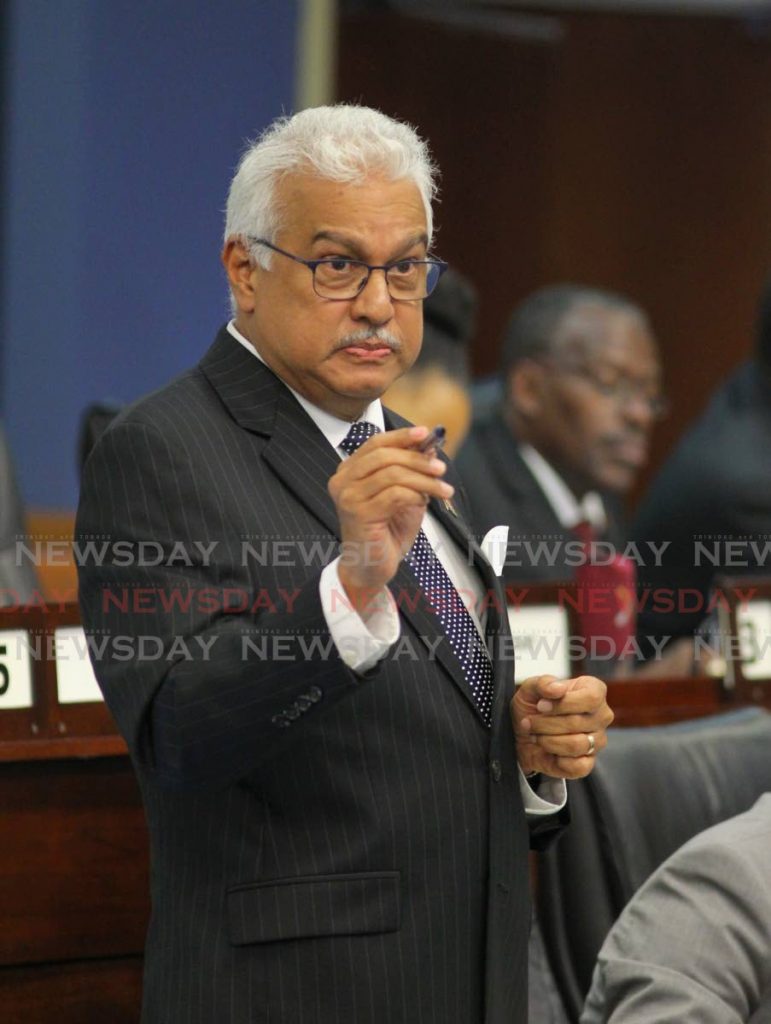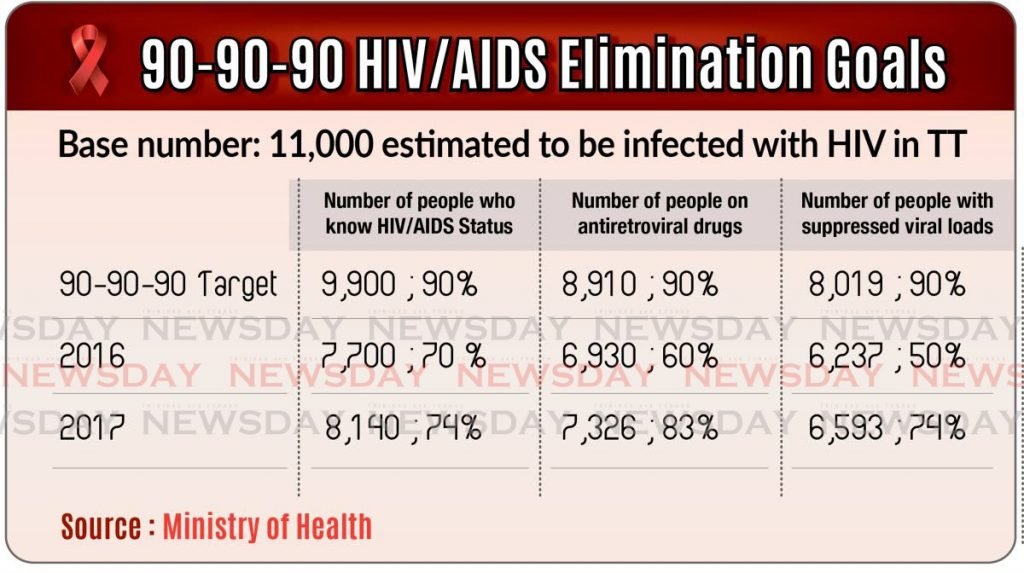Health Minister: HIV drug encourages high risk behaviour

UNAIDS regional director Dr Cesar Nunez said he has not seen much deployment Pre-exposure Prophylaxis (PrEP) in the Caribbean, and would like to see it in the national HIV/Aids programmes of more countries.
PrEP are drugs that allow people who may be at high risk for exposure to the virus to reduce their chances of contraction.
In May 2016, TT signed on to a UNAids agreement to eliminate the spread of the virus by 2030. During the signing ceremony Health Minister Terrence Deyalsingh said Government would not introduce PrEP as a subsidised form of HIV medication.
Despite criticism, Deyalsingh has stuck to this and the drugs are not part of the ministry's HIV/Aids health campaign, and is not available in the public sector.
In an interview with Sunday Newsday on Wednesday, Deyalsingh explained that the Government provided for post-exposure. For example, he said if a health care worker accidentally got stuck with a needle, or in a case of sexual assault, or a chance of contracting the virus was suspected, the people involved were given treatment.
“PrEP is to give drugs to people before exposure or with no exposure to HIV...It means that knowingly you are going to engage in some sort of behaviour that would cause you to be at a higher risk of getting HIV and you want to take a drug to prevent yourself from getting HIV...
"That is not government policy. That is available in the private sector. It’s as simple as that.”
Nunez, who was in TT for the Second Regional Seminar for Parliaments of the Caribbean on December 5, said PrEP had been introduced in Jamaica and would soon be in Haiti. He said he understood that cultural aspects, and how it would be received by the public in each country would be a consideration but still advocated for the drugs.

“My message to ministries of health: there is enough evidence already that PrEP works. I would encourage doing PrEP right away. I think it makes sense no matter where you are. It does work and it will help any country fast track the response, achieve the
90-90-90 targets faster, and get rid of HIV amongst its population, at least as a public health threat, which is the target for 2030.”
The global goal for 2020 is no more than 500,000 new infections per year and no more than 200,000 by 2030. At that rate HIV would no longer be a public health threat, but manageable at the individual level.
Nunez said PrEP should be given to people in key populations who may be more likely to be exposed to the virus, such as people with multiple sexual partners, transgender women, gay men and female sex workers.
He said they should be able to go to a clinic and say they would like to have access to PrEP and why. He encouraged countries to use PrEP because UNAids found it prevents new HIV infections in people with a high turnover of sexual partners.
To those who believe it is not fair for those people to receive the drug, he said, “Public health has to think about the collective. If we know there is a group of individuals who will be exposed to higher risk, we want to make sure they do not get infected, because otherwise the possibility of new infections (through them) grows.”
However, he said it should be distributed in combination with sexuality education, especially in the case of young people.
He said many of today’s youth grew up knowing about HIV and some have become complacent. Some youths think if they get infected they can just take a pill and be fine. But, he said, they would have to take it for the rest of their lives, and if treatments were missed for any reason, it could be detrimental.
Therefore, he said, young people need to be informed.
“Many times people believe if you expose young people to sexuality education that you’d actually encourage them to start having sex.
"But if you go to the maternity ward here at the public hospital in Port of Spain, you will realise the high number of young women, younger than 17, who give birth.
"So let’s not try to put our heads in the ground. Let’s just open our eyes, face the realities and make sure that we introduce sexual education adequate for the age of the students in schools.”
He added that sex education was not just about sex but respect, rights, and responsibilities that come with having sex. He said he believes sex education empowers girls especially, as they come to understand they do not have to have sex with their boyfriends, and the consequences if they do.


Comments
"Health Minister: HIV drug encourages high risk behaviour"